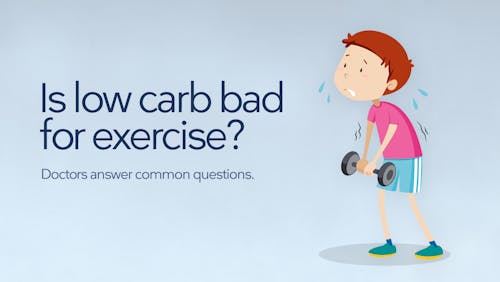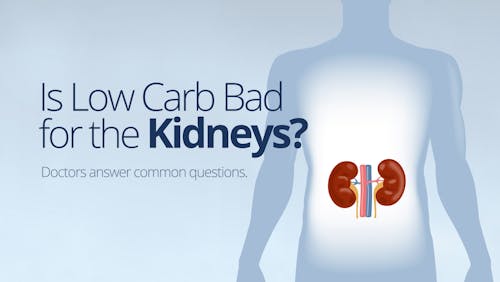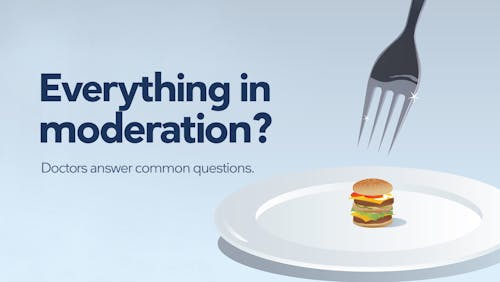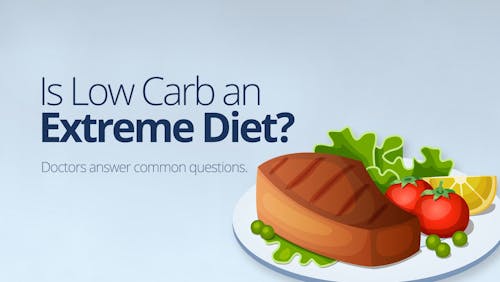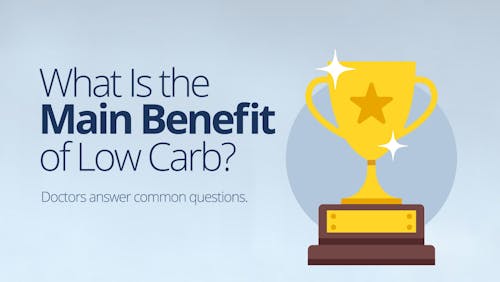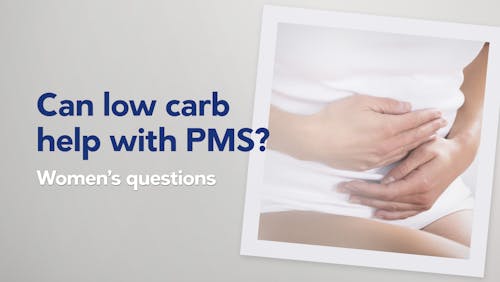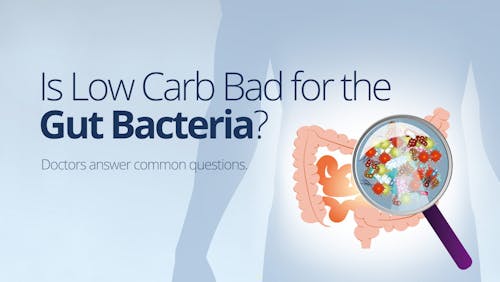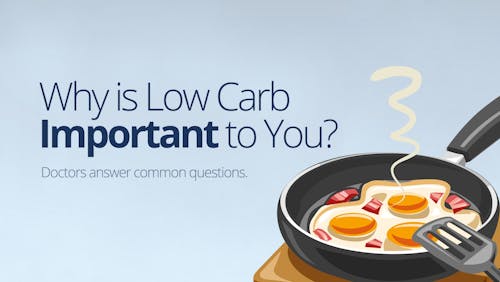Is a calorie deficit necessary to lose weight?

Is it necessary to eat at a caloric deficit in order to lose weight? Could a low-carb diet be to blame for lost periods? And what could be the cause of high blood sugars during your period?
Get the answers to these questions in this week’s Q&A with fertility specialist Dr. Fox:
Is a calorie deficit necessary?
Dr. Westman and others have said that ‘of course calories do matter’. Does this mean that we need to achieve a deficit of 500 calories a day, whilst also consuming 20 g of carbs?
Rosemary
Dr. Fox:
While calories do ultimately matter, the idea that any animal will exactly match their caloric needs with caloric intake I think is untenable. Animals in the wild certainly are not counting calories. It is my belief that if one is purely ketotic, that weight loss (assuming overweight to start with) will ensue almost no matter what the calorie intake overall to a point of homeostasis.
If you were a caveman who was fed corn for six months and “fattened” as we would cattle, and then returned to your caveman life, you would likely return to the exact ideal body weight. In today’s world however, especially for women who may be more sensitive to stress, there are upward pressures on weight caused by stress and cortisol elevation. Because of this, the homeostatic point for weight may fall short of ideal body weight. This frustrates everyone very much.
Stressors for women include excessive endurance exercise, sleep disturbance, sleep apnea, circadian rhythm disruption, caloric restriction (in high-carb nutritional environment), caffeine and nicotine, type A personality, “connectivity stress” (cell phone, email, texts, Facebook, Pinterest etc etc), work stress etc. Things like yoga, walking, acupuncture and meditation can relieve those stressors in addition to addressing them individually. Lastly, hormonal competency or normal estrogen levels can be important to be able to achieve complete metabolic health. The issue of metabolic health is a complex one and there is no “simple answer.”
Periods have stopped after eating low carb
My 14-year old daughter has had fairly regular periods for two years now. She started eating low-carb approximately six months ago due to some food intolerances and skin issues she was having. Those symptoms are now sorted and she’s the healthiest physically that she’s ever been. However, three months ago her periods stopped completely.
She has not lost any weight since going low carb, though she may have lost some “fat” (her breasts have become slightly smaller) but she has always been quite small for her age. She currently weighs 47 kg (104 lbs) and is 161 cm (5’3″) tall.
Are her lack of periods something to be concerned about or is this a common occurrence when starting a low-carb diet for someone her age?
Sara
Dr. Fox:
Great question: No, I would not think low-carb high-fat would cause stress enough to lose periods or cause significant delays. Excessive exercise is the single most common reason for women to have cycle irregularity or loss of periods.
Also is she getting enough calories? (See my answer to Rosemary above). Relative starvation is common among teens. Their friends are feeding them the party line of calorie restriction to solve weight problems, so better look into this. She may need an evaluation for this with thyroid and other endocrine problems as more unusual causes.
Good luck.
Should blood sugars be lower during a period?
I recently took to measuring my blood sugars and blood ketones.
I had always assumed that during ones period, one should have higher blood sugars because I mean, I personally gain 3 pound (1 kg) during my period. I am astonished to find that although my fasting glucose (measured 12 hr after low carb – of course! – meal) are usually in the low 80 mg/dl (4.4 mmol/L), it plummets to upper 50’s/low 60’s mg/dl (2.8 – 3.3 mmol/L) during my period!
I mean either something’s wrong with me or I assumed wrong.
Is it ok for blood sugars to fall during ones period? What is the reason behind the weight gain during ones period? How low can the blood sugars get without it being problematic? Is it advisable to raise ones carb count during the period to have more “normal” blood sugar levels?
Betul
Dr. Fox:
Wow, some great observations and questions! Yes, physiologically there is a reason for all this, and it is simply the progesterone effect in addition to a very low estrogen level during the cycle. This combination can cause blood sugars to fall faster and lower. Remember in ketosis, humans can tolerate sugars much lower than in a high carb environment. The most important question is, are you symptomatic? If so, one strategy would be to eat at least 150 calories every 2-3 hours on those days. By no means would I suggest increasing carbs to “compensate.”







